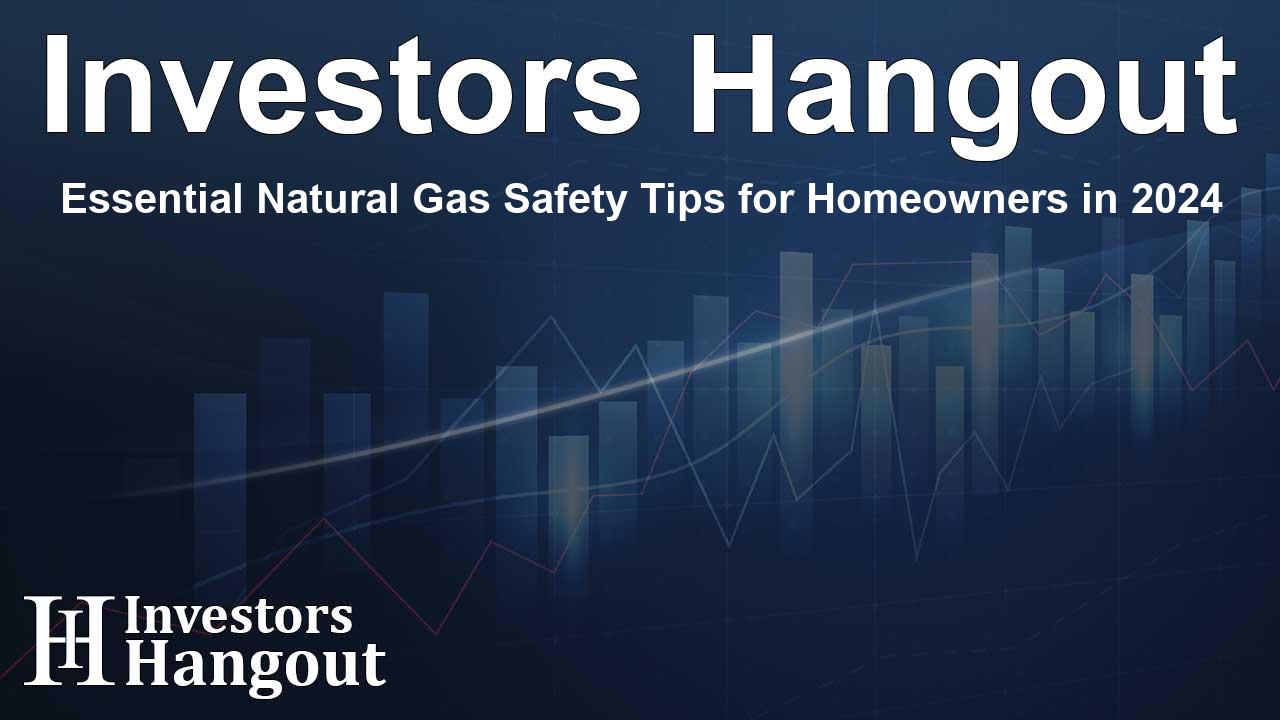Essential Natural Gas Safety Tips for Homeowners in 2024

Understanding Natural Gas Safety at Home
As the seasons transition and winter fades, it's easy to overlook the importance of natural gas safety. The home services provider, Harts Plumbers, Electricians & HVAC Technicians, emphasizes that natural gas concerns should remain top-of-mind, even as colder months come to an end.
Expert Insights on Natural Gas Risks
Richard Hart, a co-owner of Harts Plumbers, Electricians & HVAC Technicians, alerts homeowners to stay vigilant about potential dangers associated with natural gas. "Even as we enter milder weather, many households rely on natural gas appliances throughout the year, making it crucial to ensure safety measures are in place," Hart states.
Why Natural Gas Safety Is Crucial
Natural gas, while an efficient energy source, poses serious risks. Without proper maintenance, gas leaks can lead to hazardous situations, including carbon monoxide poisoning or even explosions.
The implications of even a minor leak can be severe. Hart highlights, "Regular checks on your gas lines and appliances are not just recommended; they are essential. Ensuring these systems are in good working order can prevent sickness and potential danger."
Key Safety Practices to Follow
Homeowners can actively protect themselves by adopting several safety measures. Here are some strategies you should consider:
Regular Maintenance
It's advised to have natural gas appliances, including furnaces, inspected at least once a year by qualified professionals. Regular maintenance can reduce the likelihood of malfunctions that can lead to unsafe conditions.
Install Detectors
Installing carbon monoxide and natural gas detectors in your home is a critical safety step. These devices can alert you to leaks before they become severe.
Practical Steps for Homeowners
Richard Hart shares several practical measures homeowners can adopt:
- Check and replace the air filter in your natural gas furnace regularly.
- Inspect ducts for cracks and gaps.
- Examine the flue pipe and external vents for any obstructions to ensure that harmful fumes can escape properly.
- Request a professional testing of internal natural gas lines to identify and address any potential damage.
Recognizing Signs of Danger
Since natural gas is odorless, a distinct smell akin to rotten eggs is added to alert residents of gas leaks. If you detect this odor or experience symptoms like dizziness or nausea, it is vital to evacuate the area immediately. Contact your local emergency services or utility provider for assistance.
Additional Resources for Home Safety
For homeowners looking for more information about ensuring gas line safety, visiting reliable online resources can offer guidance. Harts Plumbers, Electricians & HVAC Technicians is also a great point of contact. The company provides various services and expertise in maintaining safety for homes that utilize natural gas.
About Harts Plumbers, Electricians & HVAC Technicians
Founded in 2013, Harts Plumbers, Electricians & HVAC Technicians has been serving households with residential plumbing solutions and has earned a stellar reputation reflected in their 4.9/5 Google rating. With a core philosophy of caring, they strive to integrate kindness into every client interaction. Their accolades include the Silver Award for Electrical Service in the Best of the PNW for 2023 and a listing in the Inc. 5000 in 2024. Homeowners can reach out at (253) 470-8766 for assistance.
Frequently Asked Questions
What are the signs of a natural gas leak?
Common signs include a rotten egg smell, hissing sounds near gas lines, and physical symptoms like dizziness or nausea.
How often should I have my gas appliances serviced?
It is recommended to service gas appliances at least once a year for optimal performance and safety.
Why do gas companies add an odor to natural gas?
Natural gas is odorless; the added rotten egg smell helps to detect leaks quickly.
Can I install gas detectors myself?
Yes, many homeowners can install gas and carbon monoxide detectors with basic tools, detailed instructions are usually provided in the product manuals.
What should I do if I smell gas?
If you smell gas, leave the area immediately and call emergency services or your utility company to report the issue safely.
About The Author
Contact Caleb Price privately here. Or send an email with ATTN: Caleb Price as the subject to contact@investorshangout.com.
About Investors Hangout
Investors Hangout is a leading online stock forum for financial discussion and learning, offering a wide range of free tools and resources. It draws in traders of all levels, who exchange market knowledge, investigate trading tactics, and keep an eye on industry developments in real time. Featuring financial articles, stock message boards, quotes, charts, company profiles, and live news updates. Through cooperative learning and a wealth of informational resources, it helps users from novices creating their first portfolios to experts honing their techniques. Join Investors Hangout today: https://investorshangout.com/
The content of this article is based on factual, publicly available information and does not represent legal, financial, or investment advice. Investors Hangout does not offer financial advice, and the author is not a licensed financial advisor. Consult a qualified advisor before making any financial or investment decisions based on this article. This article should not be considered advice to purchase, sell, or hold any securities or other investments. If any of the material provided here is inaccurate, please contact us for corrections.
